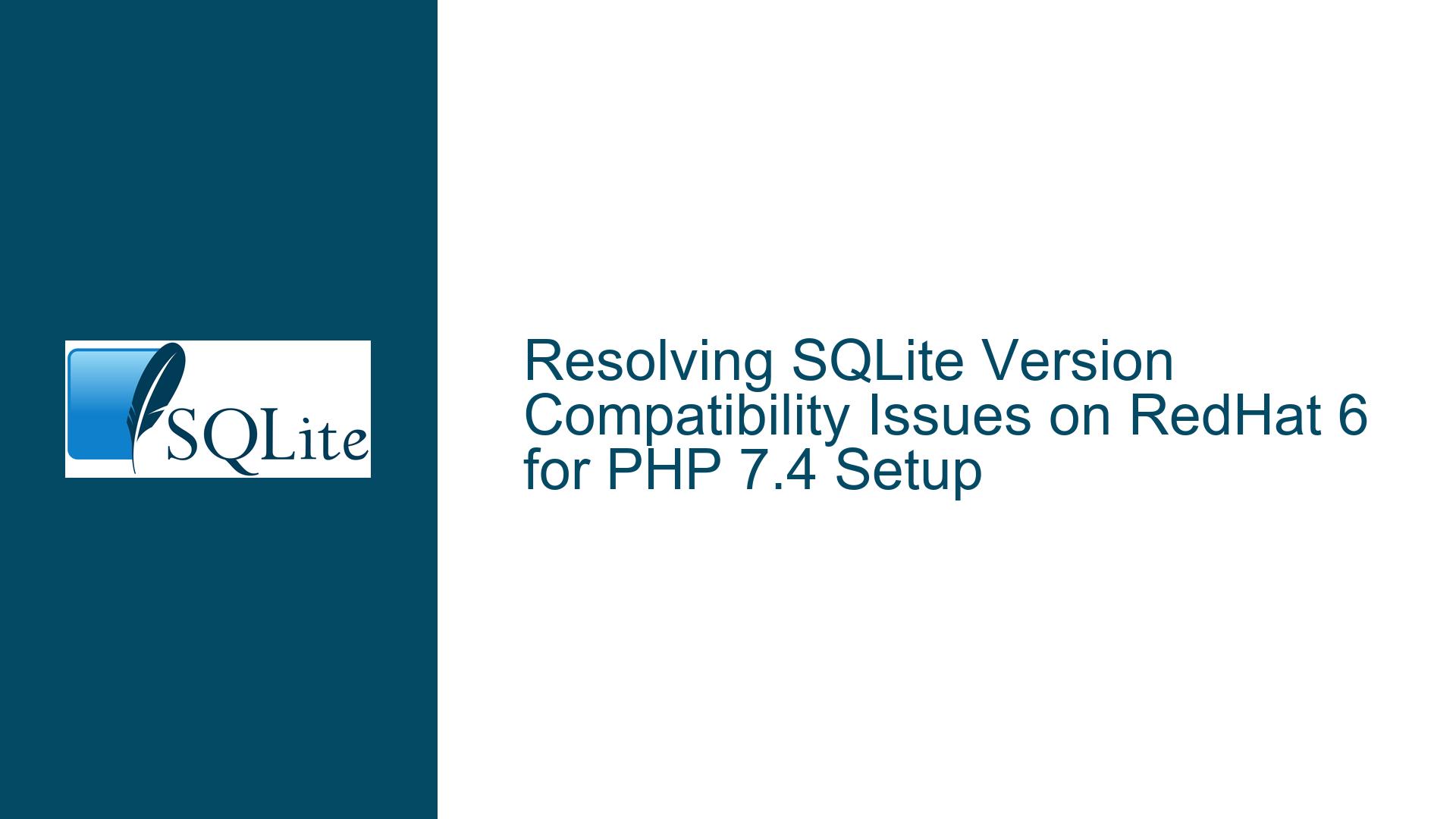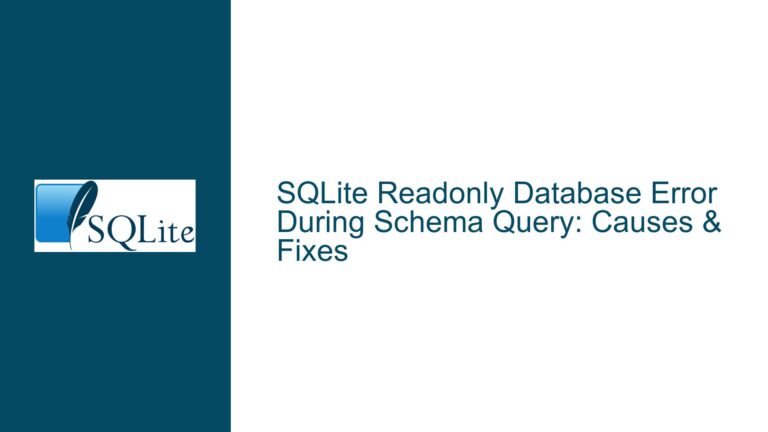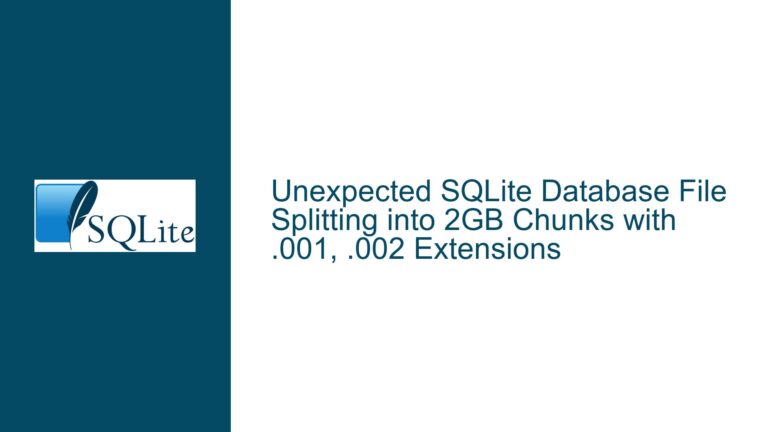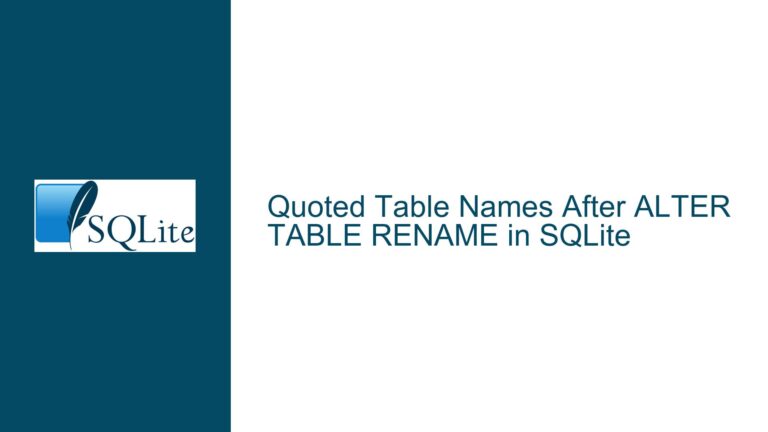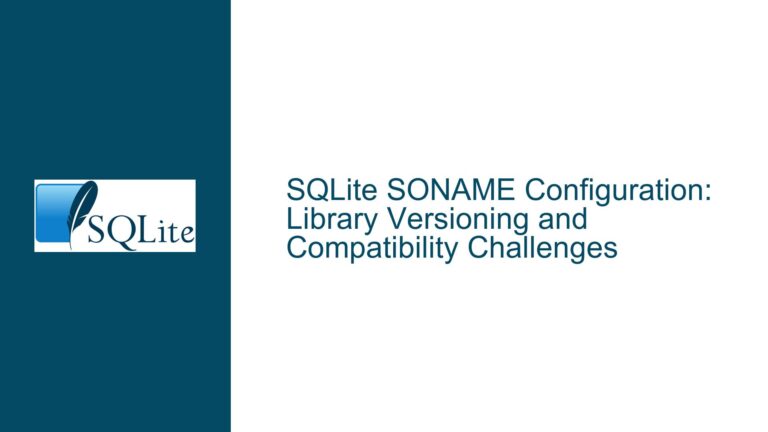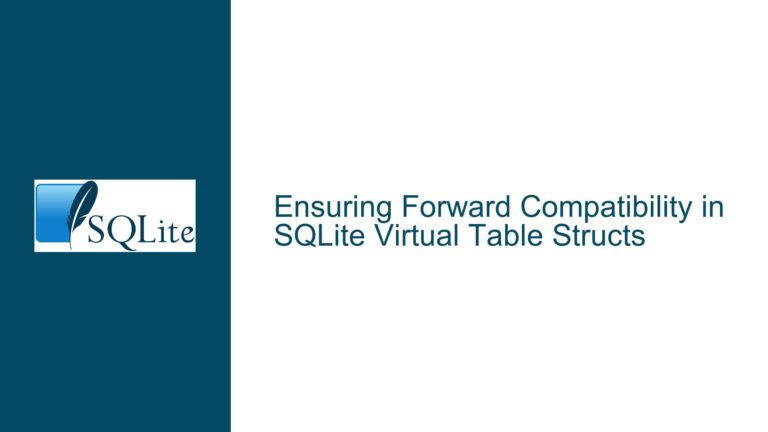Resolving SQLite Version Compatibility Issues on RedHat 6 for PHP 7.4 Setup
SQLite Version Mismatch: PHP 7.4 Requires SQLite 3.7.5 or Higher
The core issue revolves around a version mismatch between the SQLite library installed on RedHat 6 and the minimum version required by PHP 7.4. PHP 7.4 mandates SQLite 3.7.5 or higher, but RedHat 6 ships with SQLite 3.6.20 by default. This discrepancy results in a configuration error during the PHP 7.4 setup process, specifically: checking for sqlite3 > 3.7.4... no configure: error: Package requirements (sqlite3 > 3.7.4) were not met: Requested 'sqlite3 > 3.7.4' but version of SQLite is 3.6.20.
RedHat 6, released in 2010, adheres to a strict policy of maintaining package stability by backporting fixes rather than upgrading to newer versions. This approach ensures system reliability but often leads to outdated software versions. SQLite 3.6.20, included in RedHat 6, is significantly older than the version required by PHP 7.4. This creates a dependency conflict that must be resolved to proceed with the PHP 7.4 installation.
The challenge is further compounded by the fact that RedHat 6 is no longer supported, meaning official updates or upgrades from RedHat are unavailable. Users must therefore explore alternative methods to obtain and install a compatible SQLite version. This involves either manually compiling SQLite from source or leveraging third-party repositories, both of which require careful consideration to avoid disrupting the existing system.
Causes of SQLite Version Incompatibility on RedHat 6
The primary cause of this issue is the outdated SQLite version (3.6.20) bundled with RedHat 6. This version predates the minimum requirement of SQLite 3.7.5 for PHP 7.4, leading to a direct conflict during the PHP configuration process. The root of this problem lies in RedHat’s package management philosophy, which prioritizes stability over feature updates.
RedHat Enterprise Linux (RHEL) is designed for enterprise environments where system stability and long-term support are critical. As a result, RedHat avoids updating software packages to newer versions after a release, opting instead to backport security patches and bug fixes to the original versions. While this approach ensures a stable and predictable environment, it often results in outdated software that may not meet the requirements of modern applications like PHP 7.4.
Another contributing factor is the end of support for RedHat 6. As of November 2020, RedHat 6 is no longer maintained, meaning no official updates or upgrades are available. This leaves users with limited options for resolving dependency conflicts, as they cannot rely on RedHat to provide updated packages. The lack of support also increases the risk of security vulnerabilities, making it advisable to upgrade to a newer RHEL version if possible.
Additionally, the PHP 7.4 configuration process explicitly checks for SQLite 3.7.5 or higher, and the presence of an older version triggers a hard failure. This strict version requirement is in place because PHP 7.4 leverages features and improvements introduced in SQLite 3.7.5, such as enhanced performance, better concurrency handling, and new SQL functions. Without these features, PHP 7.4 cannot function as intended, necessitating an upgrade to a compatible SQLite version.
Steps to Resolve SQLite Version Conflict and Install PHP 7.4 on RedHat 6
Resolving the SQLite version conflict on RedHat 6 involves several steps, each requiring careful execution to ensure system stability and compatibility. The following guide outlines the process in detail, covering both manual compilation of SQLite and alternative approaches for obtaining a compatible version.
Step 1: Verify the Current SQLite Version
Before proceeding, confirm the installed SQLite version on your RedHat 6 system. Run the following command in the terminal:
sqlite3 --version
This command outputs the current SQLite version, which should be 3.6.20 on a default RedHat 6 installation. If a different version is displayed, it may indicate a prior modification or the presence of a third-party package.
Step 2: Download the Required SQLite Version
Since RedHat 6 does not provide SQLite 3.7.5 or higher, you must obtain the source code for the desired version. Visit the SQLite official website and navigate to the "Source Code" section. Download the tarball or zip archive for SQLite 3.7.5 or a later version. For example, use the following command to download SQLite 3.7.5:
wget https://sqlite.org/2021/sqlite-autoconf-3370500.tar.gz
Step 3: Compile and Install SQLite from Source
Once the source code is downloaded, extract it and compile SQLite on your system. Follow these steps:
- Extract the tarball:
tar -xvzf sqlite-autoconf-3370500.tar.gz - Navigate to the extracted directory:
cd sqlite-autoconf-3370500 - Configure the build environment:
./configure --prefix=/usr/localThe
--prefix=/usr/localflag ensures the new SQLite installation does not overwrite the system-default version, preventing potential conflicts. - Compile the source code:
make - Install the compiled binaries:
sudo make install
Step 4: Update System Library Paths
After installing the new SQLite version, update the system’s library paths to ensure the correct version is used. Add the following line to /etc/ld.so.conf or create a new file in /etc/ld.so.conf.d/:
/usr/local/lib
Then, run the following command to update the dynamic linker cache:
sudo ldconfig
Step 5: Verify the New SQLite Installation
Confirm that the new SQLite version is correctly installed and accessible:
sqlite3 --version
The output should display the version you installed (e.g., 3.7.5 or higher).
Step 6: Reconfigure PHP 7.4 Installation
With the updated SQLite version in place, retry the PHP 7.4 configuration process. Ensure the PHP setup script detects the correct SQLite version by running:
php -i | grep sqlite3
This command should output the version of SQLite linked to PHP, confirming compatibility.
Step 7: Consider Upgrading to a Supported RHEL Version
While the above steps resolve the immediate issue, it is highly recommended to upgrade to a supported RHEL version (e.g., RHEL 7 or 8) to avoid future compatibility problems and security risks. RedHat provides detailed migration guides to assist with this process.
By following these steps, you can successfully resolve the SQLite version conflict and proceed with the PHP 7.4 installation on RedHat 6. However, always test changes in a non-production environment before applying them to critical systems.
